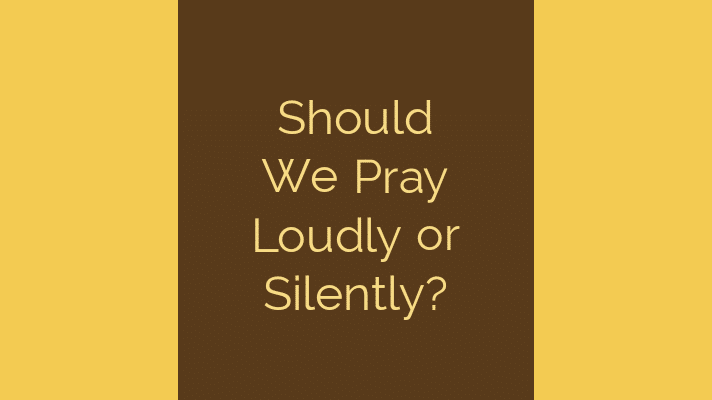We should pray loudly when we are led to pray that way and silently when we are led to pray that way. Raising and lowering our voice when praying matters.
We see from the life of Jesus that in some cases He raised His voice in prayer. Other times He prayed silently.
When He was on the cross, the Bible tells us that He prayed out loudly asking God why He had forsaken Him.
It is understandable that Jesus was in agony at that time and the raising of His voice in the prayer shows that He was indeed feeling the pain.
In our own lives, there are times we are in agony and we want instant action from God. In such cases, praying out loudly comes natural.
In other times, we pray silently because it fits into our circumstances. When we are making an intimate prayer to God, it naturally makes sense to pray silently.
Should we therefore pray loudly or silently?
Praying loudly or silently depends on the dimension of prayer that you are making. There are prayers that can’t be made silently. Others can’t be made loudly.
For example, if you are praying for someone, it makes sense for you to raise your voice so that the person you are praying for knows what you are praying for him.
On the other hand, if you are praying about personal issues, it makes sense to pray silently.
The summary of this question was written by King Solomon in the book of Ecclesiastes chapter three. He said there is a time and a season for every matter under the sun.
From the scripture, it makes sense to conclude that there is a time to pray loudly and a time to pray silently. We may disagree on when it is appropriate to pray loudly and when it is appropriate to pray silently but the truth remains that we must be praying loudly in some situations and silently in others.
According to Apostle Paul, we don’t know how to pray as we ought to but the Holy Spirit helps us to pray with groans too deep for words. The groans are obviously loud.

